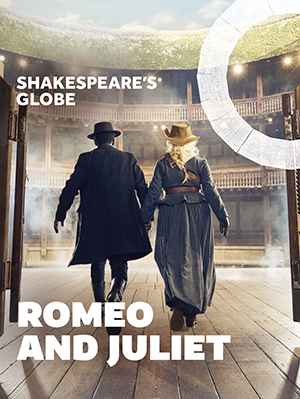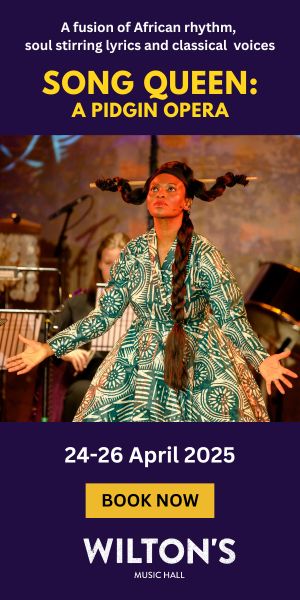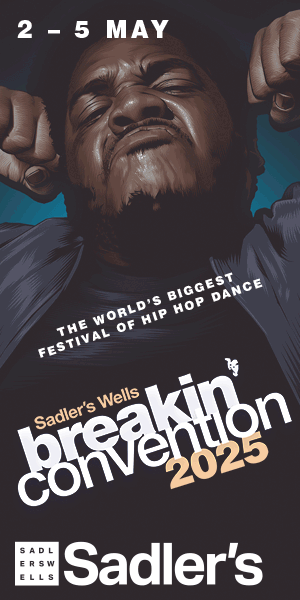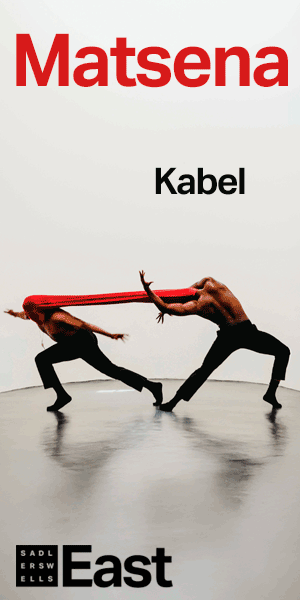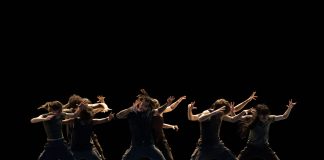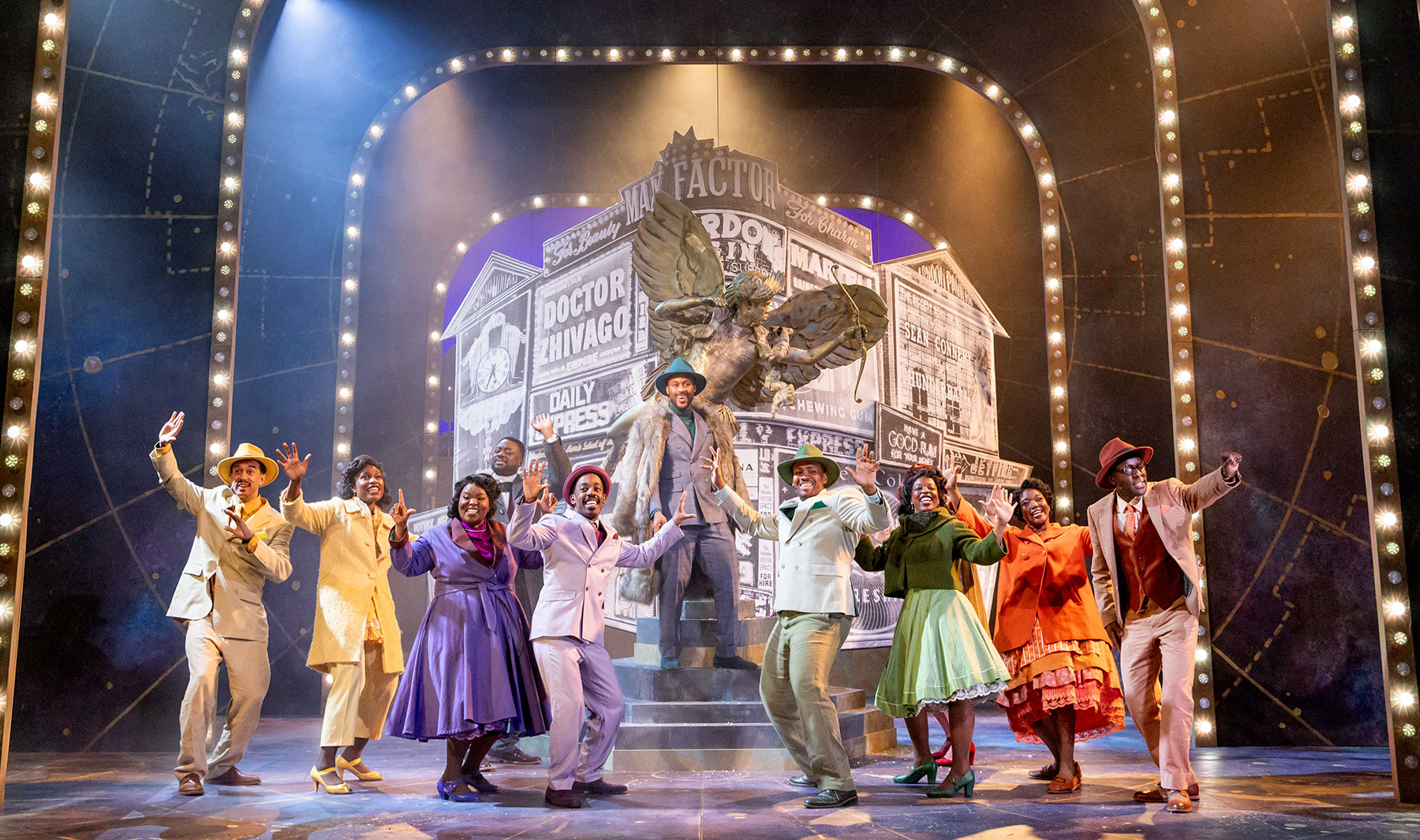
I was unable to experience the original debut of The Big Life, A Ska Musical, but was curious to see, 20 years later, what all the furore was about!
The hub bub and excitement from an ethnically and intergenerationally diverse audience was palpable. The stage was open and ready to welcome us onto a ship bound for England. We witness as enthused Caribbean passengers set sail with big dreams in their hearts and the hope of finding a new home in post war England.
The Big Life is based on Shakespeare’s Love Labour’s Lost and focuses on the trails and tribulations of Bernie (Nathanael Campbell), Ferdy (Ashley Samuels) Dennis (Khalid Daley) and Lennie (Karl Queensborough) – four singletons who have set their sights high and are in pursuit of lucrative jobs and the prospect of romantic dalliances in the ‘Mother Country’. Amongst the ship’s passengers are Sybil (Gabrielle Brooks) Mary, (Leanne Henlon) and Kathy (Juliet Agnes); women committed to being of service, while finding their fortunes in a foreign land.
From the start we know we are in for an emotional and fast paced ride. The strong and multi – talented ensemble are gutsy, comedic cast, are well equipped with sensational vocal and acting skills.
While the singletons are grandstanding and informing each other of what their lives could be given the opportunity, they encounter Admiral; a smooth, crooner whose honey tongue captures women’s hearts and men’s minds. Admiral entices the men to enter into a pact which, if accepted, would mean the prohibition of drinking, smoking and being sexually intimate with a women for three years!!! With their egos inflated (egos which are bigger than their virtue), the four accept the challenge; thus sealing their fate. Admiral, embodied superbly by Danny Bailey, is revealed later to be the god Eros in disguise; a trickster who loves the havoc he rouses.
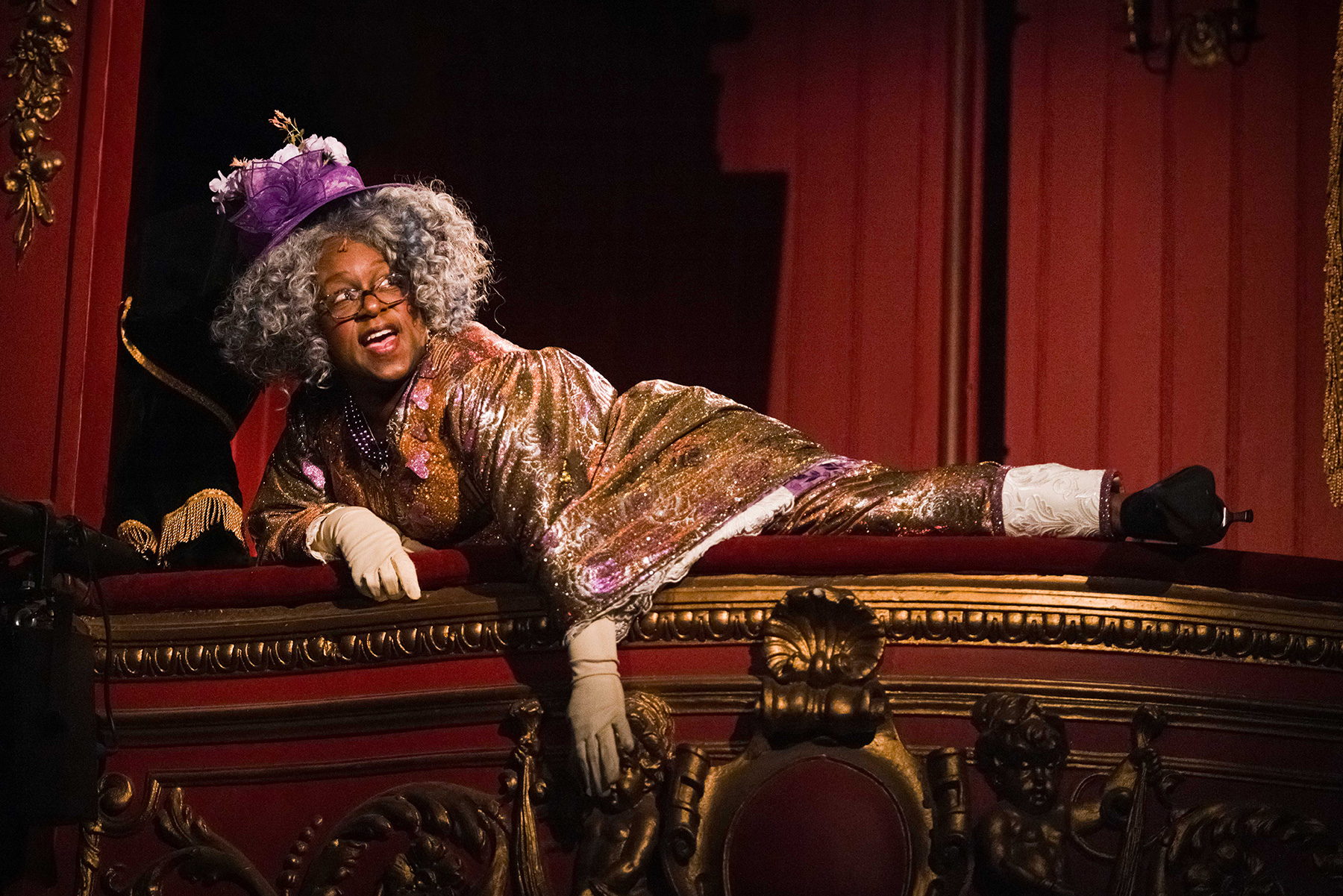
His female counterpart in this subterfuge is Mrs. Aphrodite, the goddess of love, who acts as narrator, social commentator, and the matriarchal anchor of the piece. Played by the phenomenal Tameka Empson, Mrs Aphrodite, through immense wit and comic endeavour, relays important and timely information regarding the Windrush legacy. Empson’s portrayal brings awareness to the physical and psychological impact on the communities of immigrants who came to serve in UK factories, hospitals, and the transportation industry. With the Windrush scandal still unresolved in 2024, I ask myself ‘what has really changed since post war Britain in terms of racism and immigration?’.
Bernie, having already suffered pre-wedding problems with his fiancé, Sybil, is more than game in denouncing women and forging ahead with his own life. Lennie and Dennis, as mechanic and wannabe-entrepreneur respectively, find the wooing of the ‘fairer sex’ all too vexing, and are eager to press on without being held back by them. Ferdy, an inspiring writer and academic, has no need for ‘relations’ and would rather engage with the study of etymology.
The protagonists finally manage to find room and board in a small house rented by Zulieka, (played by the tour de force which is Rachel John). Unfortunately the other tenants are the very women they are trying to avoid!
While attempting to gain their footing in a hostile new land and navigating racism from every corner, the characters speak of their diabolical treatment, lack of access to work and their economic downfall. Although the portrayal of the characters mistreatment was effective, certain storylines feel as if they might have been explored in a deeper – more visceral – manner.
Tinuke Craig’s direction is well executed and crafted, depicting scenes which showcase Ska and Calypso songs; communicating the pathos as each character spoke of their disappointment, or sung their withered dreams. In a standout scene, set in a hospital ward, Dennis fights back tears while confessing to Kathy (his nurse and romantic interest) that he has been racially attacked and wishes to return home.
Religion and spirituality are themes that are embedded within the plot and are manifested by the hilarious ‘fire and brimstone’ Reverend (Gabriel Fleary) and the amiable sex worker Jacqueline (Beth Elliott). Respecting the differences of others and showing love through action (not words) are prevalent themes in the piece and finely demonstrated throughout.
I would love the lyrical content of certain songs to match the powerful impact of the book written by Paul Sirett. I have to commend the wonderful musicians who had the audience dancing in their chairs. Kudos to musical director Ian Oakely, for bringing such soul, rhythm, and bass to life.
The second act shows that all is not lost for our lovers, despite the machinations of the gods and taunts from racist natives. The men come to realise their folly and try to make amends to the women in their lives. The protagonists come to understand that men may not be from Mars and women may not come from Venus!
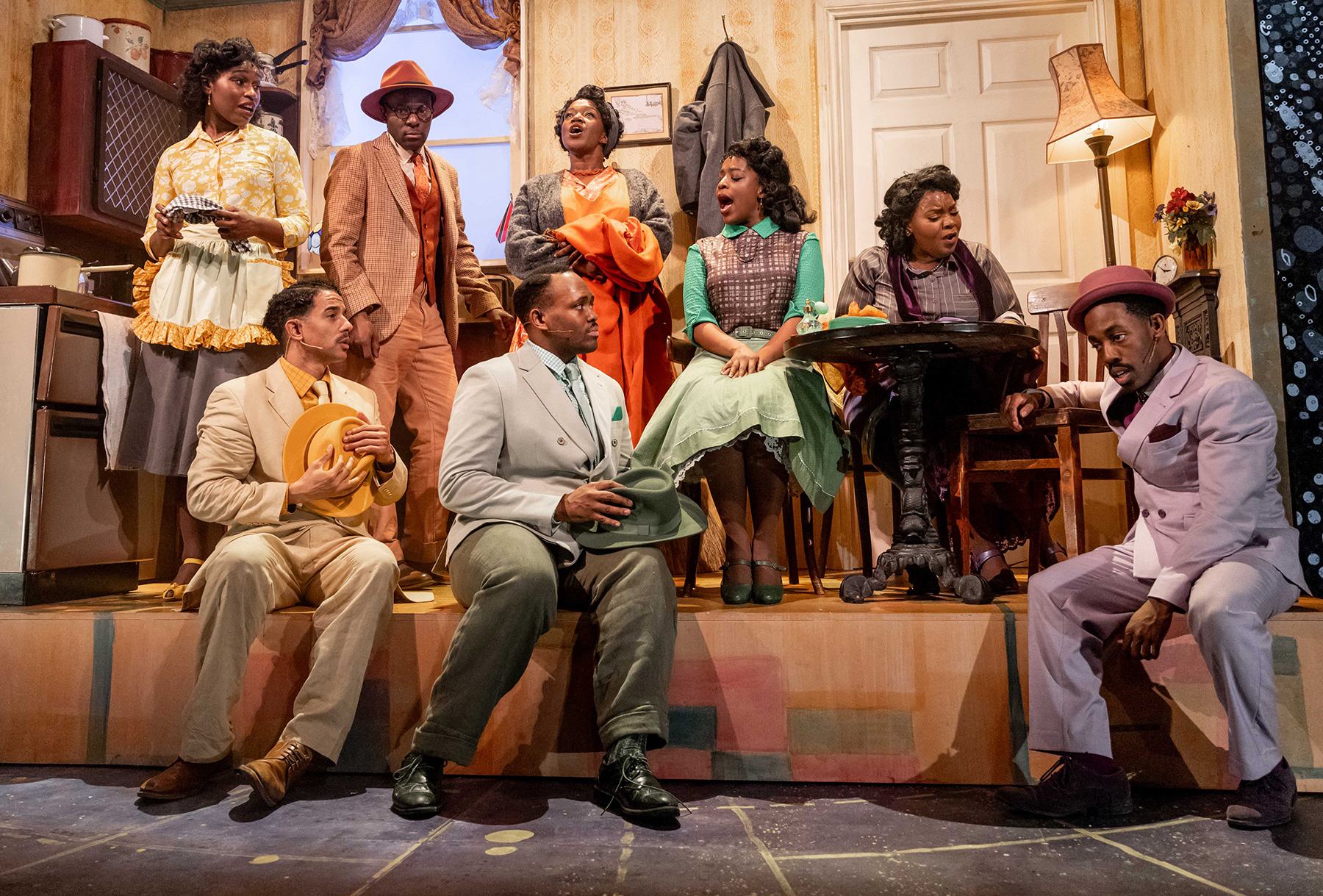
The sheer display of physicality presented through movement, gesture and dance has to be applauded. The ensemble’s physical energy is extremely impressive, and cast are represented in their best light through choreographer Ingrid Mackinnon’s polished, passionate, and vibrant work.
Jasmine Swan’s set design is well detailed and culturally evocative, it reminded me of my mother’s home and conjured up familial celebrations around the kitchen table. Swan’s Eros statue is as epic as it is striking and deserves a mention.
The Big life is a template of what great art can be – entertaining, political, provocative, and human.
I now understand what all the fuss was about 20 years ago…so go tell your family and friends, bring your dancing shoes, and prepare to be dazzled.
NEED TO KNOW: The Big Life plays at Stratford East until 30 March 2024
























